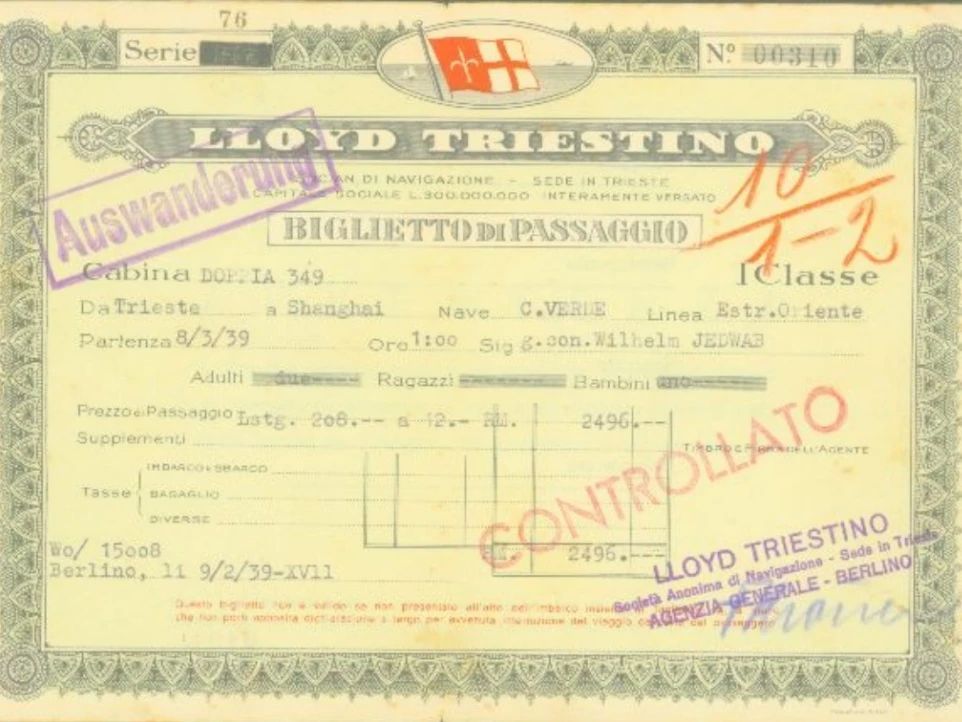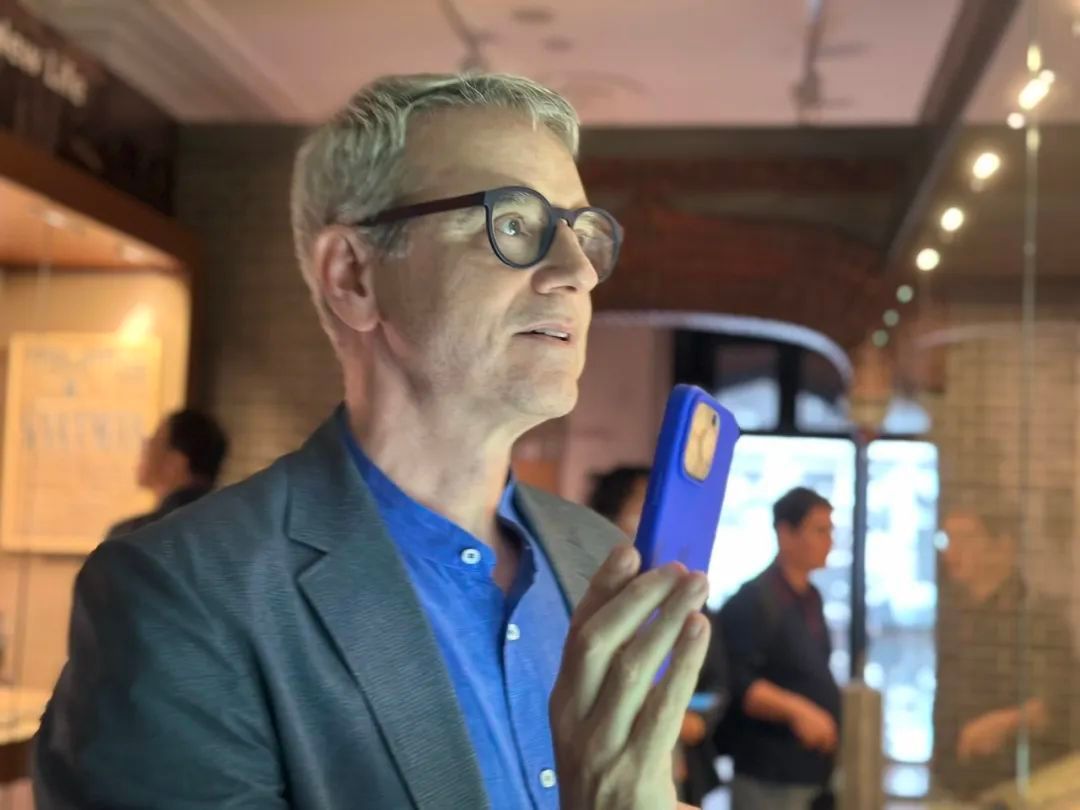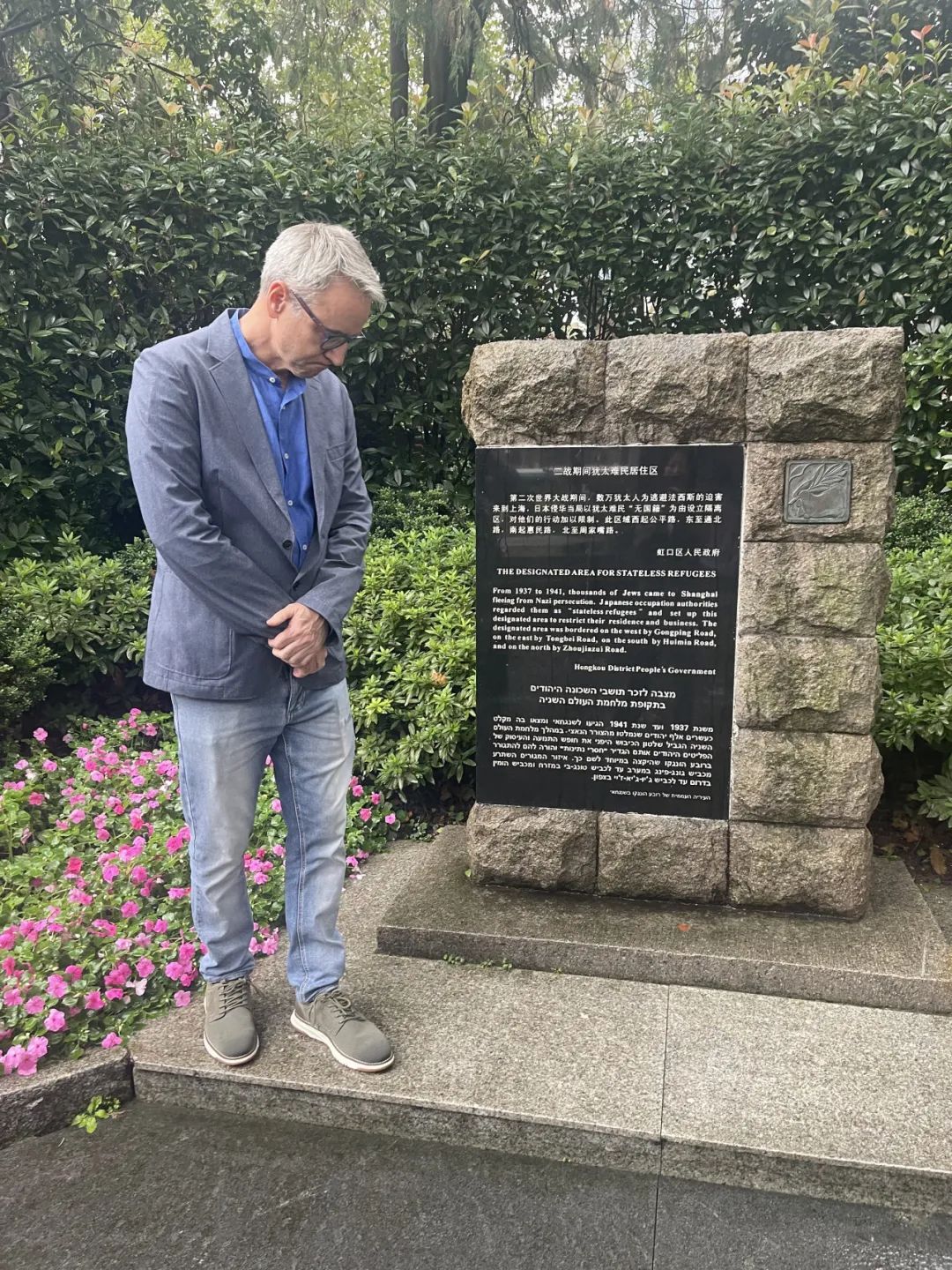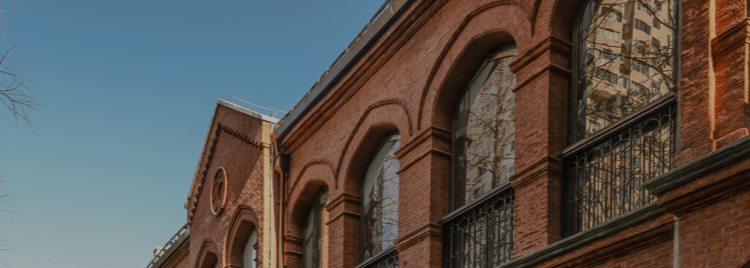For William Jedwab, the untouched family memories are hidden in an old suitcase. And it is time to uncover them.
William is a descendant of Shanghai Jewish refugees from Brazil. In March 1939, his family came to Shanghai from Germany for shelter and lived here for nine years. For a long time, this experience was deeply hidden in the family. No one ever talked about it. It was not until William opened an old suitcase at home, which contained many certificates, ship tickets, photos, etc. related to Shanghai that he realized there is a untold story about Shanghai. What is the connection between the East and his family? With curiosity, William began to explore this little-known history.
On the last day of October, in the continuous autumn rain, William came to the Shanghai Jewish Refugees Museum to unfold the hidden memories. During the visit, he practically recorded everything in the Museum. He was curious about all the historical details and asked many questions. When he saw the German passports, ship tickets to Shanghai, and report cards of the Kadoorie School on display, he was so excited, "We have all of these at my home".

The ship tickets for Wilhelm and his family to Shanghai

Wilhelm's Foreigner's Residence Permit
In the "Special Feelings for China" section, seeing a part that tells the story of Brazilian violist Horacio Schaefer who searched for his roots in Shanghai and donated historical materials to the Museum, William told us there was another hidden connection. In 2019, the tour exhibition "Jewish Refugees and Shanghai" held by the Museum was displayed at the Jewish Museum of São Paulo, Brazil, William went to that exhibition and was deeply touched by it. After the exhibition, William donated all the historical materials of his family to the Jewish Museum of São Paulo, hoping that more people would have an in-depth understanding of the history of Jewish refugees in Shanghai.

William visiting the exhibition hall
William once saw an old newspaper that recorded that his grandfather had passed away in Shanghai in 1948 and his grave was near Huoshan Park. The grave is no longer there. Led by the Museum staff, William came to Huoshan Park wherehe stood in front of the "The Designated Area for Stateless Refugees" monument, gazing for a long time. Finally, he put away his umbrella, let the rain soak his clothes, and took a bow in deep remembrance.

William remembering his family in front of the monument in Huoshan Park.
William said when he was a child, he was told repeatedly not to touch the suitcase in the cupboard. He did not understand why until growing up. It was too painful for his grandparents to even talk about their experience. In the process of exploring his family's past, he searched for historical materials everywhere and wanted to piece together the whole picture. He went to Germany many times to get an in-depth understanding of the history and set foot in China for the first time in 2005. Walking along the streets in Shanghai at that time, he seemed to see his grandparents and father, as well as thousands of European Jewish refugees living here.
"It’s an amazing job the Museum did." William said, "The relationship of the Chinese people and Jewish people had during wartime is something never to be forgotten. In the future, maybe we’ll have difficult times again, but you must remember how two people get along together. This is a legacy for future generations.
It has always been William's wish to bring the family historical materials back to where the story took place. On November 4th, after finishing his trip to Beijing, William returned to Shanghai to meet with Director Chen Jian of the Museum. He hoped that through cooperation with the Jewish Museum of São Paulo, the donated historical materials could be shared with the Shanghai Jewish Refugees Museum. He also revealed that his family's story had been adapted into a play and put on the stage. When it was performed in a theater in São Paulo, about 22,000 audiences came to watch. He hoped that this play could also be presented to the Shanghai audience in the future.
Story of Seeking Refuge
In March 1939, William's grandparents Wilheim Jedwab and Kaete Jedwab took their 1-year-old son Marcel Jedwab on the "Conte Verde" ocean liner and came to Shanghai to escape Nazi persecution. They made a difficult living in Shanghai and once opened a clothing store at No. 9, Lane 24, Huade Road (now Changyang Road). Marcel grew up and studied at the Kadoorie School and had excellent grades. On June 8, 1948, 54-year-old Wilheim passed away in Shanghai and was buried in the Huade Road cemetery. In the same year, Kaete and Marcel left Shanghai for Brazil.


![]() 021-55133186
021-55133186![]() info@shjews.com
info@shjews.com![]() 62 Changyang Road, Hongkou District
62 Changyang Road, Hongkou District

![]() 021-55133186
021-55133186![]() info@shjews.com
info@shjews.com![]() 62 Changyang Road, Hongkou District
62 Changyang Road, Hongkou District